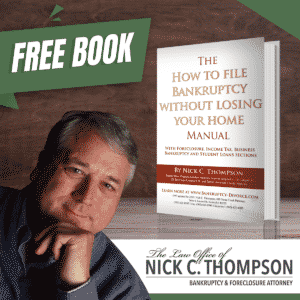Medicaid is supposed to be your last resort for medical services. So, if Medicare is not paying enough to pay for services then Medicaid will pay for medical services. However, you have to spend down assets first before using Medicaid. Unfortunately, in essence, Medicaid becomes just like a judgment creditor who can take your assets to pay your remaining bill. This is how to qualify for Kentucky Medicaid and protect assets.
How to Protect Your Assets While Still Qualifying for Kentucky Medicaid
 ⎆ How to qualify for Kentucky Medicaid and protect assets.
⎆ How to qualify for Kentucky Medicaid and protect assets.
The average person will be sued about nine times during their life. If you want to own anything, you must have some plan to safeguard your assets and get them out of your name so that probate, taxes, and creditors do not take your assets. This is often called asset protection. Trusts, converting assets to exempt assets, spending assets, and other legal devices allow you to own or use the property in ways creditors cannot reach. However, this does not mean you cannot get benefits from your assets.
⎆ Medicaid and the five-year rule.
With Medicaid, you can gift your home or personal property to children and others. However, for five years, you do have to pay at least in part for Medicaid coverage. Each month of nursing home care costs about 10,000 dollars. If you need extended care for nursing home benefits you cant gift money just before applying. If you do, you might have to pay about one month towards every two months of care before Medicaid covers the remainder. This means you have to return or hold back enough to plan for some partial payment if five years have not passed.
There is a gift tax exclusion that may allow you to give more than $15,000 per year. These exclusions allow you to give to a disabled child, spouse, or caregiver for tax purposes on form 709 with no tax liability. However, the tax exclusion does not apply to your Medicaid benefits. You may have to return some part or all of a gift if it was made less than five years before receiving Medicaid.
⎆ What Medicaid does not review.
Medicaid does not look at your spouse’s home or your personal auto used to go to a doctor. Your spouse can win the lottery or receive an inheritance, and that is not your property. However, you cannot co-mingle assets and place her income into a joint bank account. At that point it becomes your money as well and getting it back may be impossible or at least hard to do. At the time of making the resource assessment, all of your assets should be exempt assets, spent or transferred properly so Medicaid does not get them. Although, Medicaid does not use the Bankruptcy exemptions exempt property for Medicaid purposes acts very much like the Bankruptcy exemptions because the trustee cannot attach exempt property or the property of third parties.
⎆ The Miller or qualified income trust.
If the Medicaid applicant receives an income, you may be able to pour that income into a trust called a Miller Trust. Miller trusts pay for personal needs, health insurance, patient liability, and spouse and family support. However, the personal needs allowance is very restrictive. The community spouse may receive payment from $2,057 to $3,090 (2018 figures) for support from this trust. The community spouse (non-applicant) is given a shelter expense if their income is below the limit of $2,057 (2018). You may also transfer income to bring their income up to this limit.
Attempting to start a trust is too late for most people who do not plan for what eventually must happen. Further, we never know when it will happen. For instance, people are sometimes in nursing home care in their 20s and 30s because of disabilities. However, planning for Medicaid as a creditor means we plan before the need becomes critical. So, at least five years before you apply for Medicaid you should move assets out of your name and control. If you don’t, you may go without care. Or, you may give property away to Medicaid instead of your heirs.
⎆ Medicaid planning to protect assets for married couples.
Fortunately, Medicaid can never come after the family home if the spouse is still alive after the nursing home resident dies. Your IRA and one auto are also excluded. It can, however, come after any other property such as a farm or vacation home which is not the residence. Essentially almost all property of the recipient including personal injury lawsuits belongs to Medicaid. The application process is very similar to a trustee in bankruptcy or a creditor who has a judgment lien. All of the property belonging to the resident becomes the property of Medicaid with some exclusions such as the marital home.
Many items are not paid for by Medicaid like clothing, dental care, eyeglasses, hearing aids, and batteries, Cable TV, telephones, personal items, or devices that give patient mobility such as wheelchairs or scooters. These are all items that you might still want to provide for the patient. Medicaid planning allows the nursing home stay to be more comfortable and pleasant for both the spouse and the resident. Medicaid planning provides the married couple benefits they otherwise will be without by just moving the property from non-exempt to exempt, so Medicaid doesn’t take it.
⎆ The resource assessment that lists property.
At the time of filing, every couple applying for Medicaid has to supply a resource assessment that lists the property to sell or transfer to Medicaid. That also must include what property you plan to keep. Of course, the goal is to give them nothing. Family trusts which are irrevocable in which you have no control, are often in use to set property aside for later. However, if you transfer property within less than five years before needing Medicaid, you will not be able to protect your assets, and Medicaid will deny you care.
⎆ Special or supplemental needs trusts and spending.
Some trusts provide services for a person with a disability. That might include a home care companion, a home, special medical equipment, or a vehicle for the disabled. A special and supplemental needs trust can also provide for other exempt items for a person with a severe injury. The special and supplemental needs trusts can also be exempt from Medicaid. Depending on whether you set the trust up with first-party or third-party funds, Medicaid has little or no control. But, if the person is under age 65, he must have a disability if he sets up the trust with his funds. Additionally, a self-settled trust is set up with your funds. However, any trust must not be in control of a beneficiary in any way.
⎆ Turning resources into exemptions to protect your assets.
You might want to transfer or use up the property to make countable resources into exemptions to protect your assets. You also might want to use up assets. For instance, you might install a 50-year roof, an air conditioner, and a furnace in the exempt marital home. This helps you use up money in your non-exempt savings for an exempt asset. Interestingly, furniture and appliances rarely count as an asset in the resources assessment.
Moreover, if a spouse is going into a nursing home for ten years, now may be the time to buy appliances for the one who stays at home during this time. Exempt assets we keep, non-exempt assets are taken. If assets over 10,000 are left over at the time of death, then Medicaid is paid first. Therefore you may want to make certain assets are used or properly transferred to prevent this.
These laws are listed in 42 USC 1396p(b) (1-4) and Kentucky 907 KAR 1:585. You may also want to see The Medicaid Operations Manual and the 2005 Deficit Reduction Act of 2005.
 Other Related Information
Other Related Information
Tax and Bankruptcy Lawyer for Business Trust and Income Tax • Video
Including Income Assets, Debts, and Expenses in a Bankruptcy Petition
Chapter 13 Bankruptcy in Louisville Kentucky
Tax and Bankruptcy Lawyer for Business Trust and Income Tax
If you need help protecting your assets, contact my office right away to start the conversation. Nick C. Thompson, Attorney: 502-625-0905

 ⎆ How to qualify for Kentucky Medicaid and protect assets.
⎆ How to qualify for Kentucky Medicaid and protect assets.

